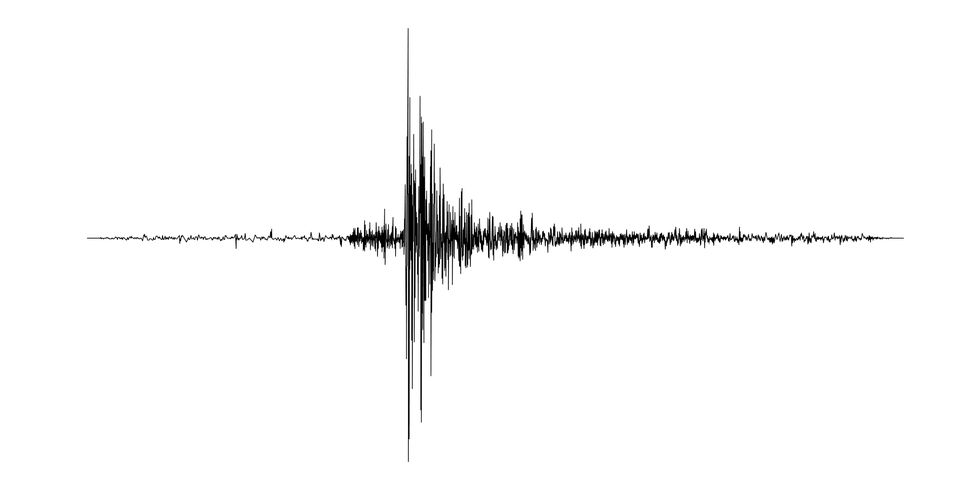
Forget doomsday clocks, blood moons, and collapsing civilizations — the real apocalypse beat is already here. Deep inside the bowels of our planet, Earth is giving off a strange heartbeat: a mysterious seismic rumble every 26 seconds. And no, nobody knows why.
This phenomenon, nicknamed the Earth pulse or 26-second microseism, has been baffling scientists for more than six decades. Some say it’s the ocean slapping the continental shelf like a drunken drummer. Others blame volcanoes. And a few whisper about something much stranger — like Earth itself breathing, or perhaps signaling extraterrestrials in Morse code.
Whatever it is, the planet is basically ticking like a time bomb. Comforting, isn’t it?
A Mystery Discovered in the Swinging Sixties
The pulse was first noticed in the early 1960s by geologist Jack Oliver at Columbia University’s Lamont-Doherty Geological Observatory. Back then, seismology was still rocking its training wheels, and Oliver picked up a weird repeating signal no earthquake manual had ever mentioned.
Decades later, with better instruments, scientists finally narrowed the source down to the Bight of Bonny, a coastal nook in the Gulf of Guinea, West Africa. In other words, Earth has a very consistent hiccup, and it’s centered in one of the most geologically and volcanically active corners of the Atlantic.
What Could Be Causing Earth’s Creepy Beat?
- Ocean Waves Doing Percussion Practice: Some researchers think it’s nothing more exotic than waves pounding the continental shelf, like a giant drum. As water repeatedly smashes into the edge of the seabed, the vibrations could be reverberating across the planet like a steady metronome.
- Weird fact: The force of ocean waves can be so powerful that they’ve been recorded on seismographs hundreds of miles inland. Essentially, the sea is loud enough to shake mountains.
- A Volcano Clearing Its Throat: Others blame a nearby volcano on São Tomé Island. Volcanic microseisms — smaller seismic signals linked to magma movement — are already known in Japan and elsewhere. If this theory is right, Earth might not just be breathing; she’s wheezing sulfur and fire.
- Fun (terrifying) fact: The island’s volcano rises 3,000 meters from the ocean floor, making it one of the tallest mountains on Earth if measured from its base.
- Something Even Weirder? Let’s be honest: waves and volcanoes are the boring explanations. Could the pulse be:
- A geophysical Morse code left by aliens to check if we’re paying attention?
- Earth’s version of a heartbeat, warning us she’s stressed out by humans drilling, polluting, and TikTok-ing?
- Or the countdown to a planetary reset button nobody really wants pressed?
Why Scientists Haven’t Solved It (Yet)
Here’s the kicker: we can measure the pulse with extreme precision, but scientists still don’t know what causes it. Why? Because seismologists are usually too busy studying “important” things, like earthquakes, tsunamis, and nuclear tests.
But the Earth pulse hasn’t stopped. It’s as if our planet is whispering: “I’m alive, and I’m waiting for you to figure me out. Tick. Tock.” Yes, it’s living for real.
Strange But True: More Planetary Beats
- Jupiter has auroras that pulse like a cosmic disco.
- The Sun vibrates with acoustic waves, producing something like a constant symphony.
- Even your own body hums: cells resonate at frequencies scientists can actually measure.
- And all planets are vibrating sacred geometry.
So maybe the Earth pulse isn’t an anomaly at all. Maybe it’s just Earth’s way of joining the universal band.
The Planet Has Rhythm — And We’re Dancing on It
The Earth’s 26-second heartbeat is one of the most enduring mysteries of modern geophysics. Whether it’s waves, volcanoes, aliens, or the planet preparing to sneeze us off like unwanted dandruff, one thing is clear: the Earth is alive, and she’s not done surprising us.
So next time you feel your phone buzz, remember — it might not be a text. It could be the Earth herself, calling to say: “Your time is almost up, sweethearts.”
Frequently Asked Questions About Earth’s Creepy 26-Second Pulse
What is the Earth’s 26-second pulse?
The Earth pulse, also known as a microseism, is a strange seismic signal that repeats every 26 seconds. First discovered in the 1960s, it sounds like the planet has its own internal metronome. Scientists still don’t fully understand what’s causing it — which is either fascinating or terrifying, depending on your caffeine levels.
Where does the pulse come from?
The pulse has been traced to the Bight of Bonny, a coastal region in the Gulf of Guinea off West Africa. So if the Earth really does have a heartbeat, it’s currently thumping away just offshore of Nigeria and São Tomé.
Could ocean waves be responsible?
Yes, one theory suggests that waves crashing on the continental shelf act like a drumbeat, creating the pulse. Imagine the Atlantic Ocean playing bongos — except instead of a beach party, it’s rattling the entire planet.
Is a volcano causing Earth’s pulse?
Another theory points to a volcano on São Tomé Island. Volcanic activity can produce rhythmic microseisms, and the pulse’s origin point is suspiciously close to one. Basically, it might be Earth’s way of coughing every half-minute.
Does the Earth pulse mean something bad is coming?
Probably not immediately — but it does highlight how little we actually know about the planet we live on. Some scientists think it’s harmless background noise. Others worry it could be a clue to larger geophysical processes we don’t yet understand. Translation: don’t panic… yet.
How long has Earth been pulsating like this?
The pulse was first documented in the 1960s, but it’s almost certainly been happening for much longer. After all, the planet didn’t just pick up the habit when bell-bottom jeans were invented.
Could aliens be behind the pulse?
Officially: no evidence. Unofficially: this is exactly how every sci-fi movie starts, with a weird repeating signal that scientists ignore until it’s too late. Sleep well.
👉 Want more end-of-the-world updates, bizarre science, and sarcastic commentary straight to your inbox? Subscribe here for FREE before the planet skips a beat.
👉 If you can, help fuel the weirdness. You can chip in via PayPal or the DonorBox (Credit/Debit Cards accepted). Every little bit keeps StrangeSounds strange—and unstoppable.













The Earth is hatching.
I’ll bet it’s 26.3671875 seconds.
Third Shaking of Planet is under way?
If the earth breathes, why not have heartbeat? Does man know so much that he can rule out the obvious?
Interesting article. I guess the micro-seismic activity is not a high priority since it doesn’t damage anything.